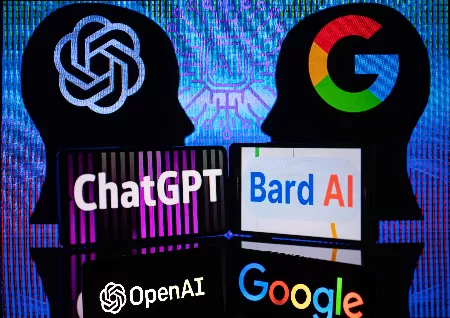ChatGPT Demonstrates Dangerous Implications For AI

The Risky Consequences of ChatGPT For AI Sports Owners And The Robot
While AI is already having an influence on several industries, the sports industry is the most obvious and game-changing. The rationale is that everything in sports depends on the ability to forecast future results. Consider a few of the prompt judgements that must be taken.
The Oakland Athletics and general manager Billy Beane launched this form of predictive research based on data analytics. With a $44 million budget, they were able to compete favourably with clubs like the Yankees, who had a $125 million payroll. He was memorably portrayed by Brad Pitt in the film Moneyball, which was based on the biography of Beane by identical name.
Money Ball's central thesis was that statistical analysis, such as slugging percentage and on-base percentage, offered a more accurate method of predicting success than the business judgement of scouts and managers, two groups of people that work closely with baseball. By enabling Beane to try his hypothesis at a time when it was yet unproven, Oakland's owner at the time, Lew Wolff, accepted a significant risk. Wolff told me that when I spoke to him, "many felt I was insane to let Billy utilise statistics to make judgements instead of the expertise of the baseball specialists."
All of the major sports leagues are adopting AI into every aspect of their operations, especially in terms of fan interaction.
For AI analytics, the NFL has already teamed with AmazonAMZN +3%.
To assess quarterback throwing ability, for instance, they have introduced an AI tool that integrates seven AI models, including a novel model to forecast the value of a pass before the ball is delivered. The NBA is also integrating AI into an engagement tool to provide fans a thorough study of teams' and players' performances in almost every imaginable circumstance.
Although ChatGPT does not presently do predictive analysis, it has shown that AI's capacity to gather enormous quantities of data can result in improved player and game-time decision-making, which has ramifications for scouts, coaches, and general managers. These people must decide on a number of issues that are crucial to the franchise's success, including The most important decisions in baseball are whether to pull a starter and which reliever to use, or when to pinch hit and who to use. The decision of who and when to substitute presents itself in both basketball and football. Every facet of the game is unique, and each move is supported by a unique set of statistics.
Billy Beane could not have produced a more accurate prediction study with simply slugging and on-base percentage, but with the power of AI, we can actually analyse millions of data points in real time. Everything may be predicted by AI, even the performance of a player who is added to a line-up or performance to a player's expected career and risk of injury.
The consequences of all this are that advanced machine learning in the future is intimidating. The Lakers are an excellent illustration of a club that is having trouble assembling LeBron James' ideal supporting group. The analytics will reveal the player who best fits the system, eliminating the need for a general manager to make a deal based on gut instinct or scouting reports. GMs and scouts will therefore become obsolete.
You then discuss the coach. You may use predictive analysis to determine when substitutes are necessary. What plays should be termed, too? There is no room for speculation. Let's say the robot coach with AI takes a pauses when outlining the play. The sole exception is when a famous athlete, such as LeBron James, refuses to participate and declares that he doesn't want a robot to be the team's coach. After that, everything crumbles.
Related queries to this article
- chatgpt
- demonstrates
- dangerous
- implications
- for
- ai
Read more articles and stories on InstaSity Trending Topics.




